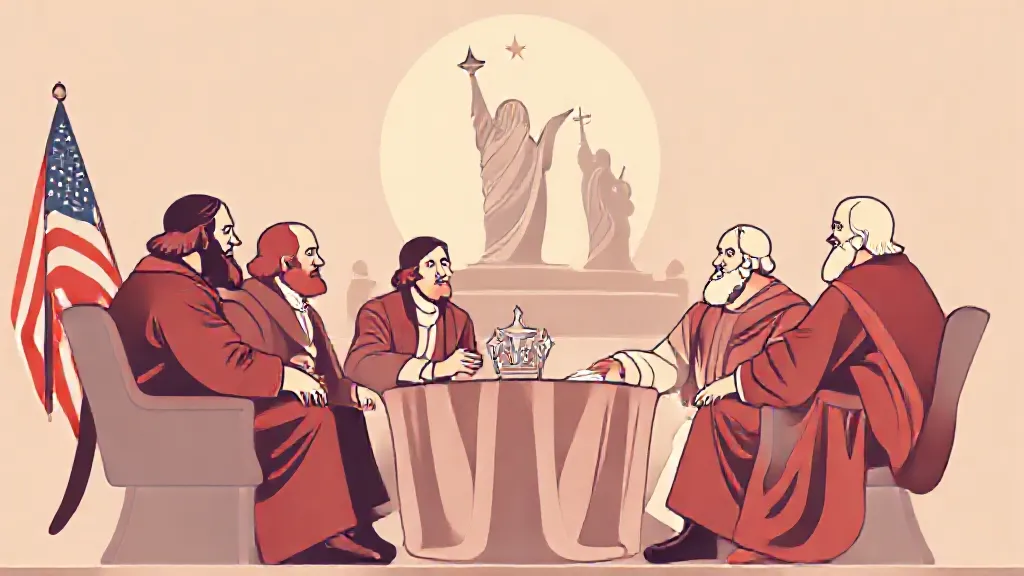The rejection of monarchy by the Founding Fathers of the United States was rooted in a complex interplay of historical experiences, philosophical beliefs, and practical considerations. The American Revolution was not only a struggle for independence from British rule but also a profound ideological shift towards republicanism, which emphasized the principles of liberty, equality, and self-governance. The Founding Fathers were deeply influenced by Enlightenment thinkers such as John Locke and Montesquieu, who advocated for the separation of powers and the social contract theory, which posited that governments derive their authority from the consent of the governed.
Historical Context of Monarchical Rule
The American colonies experienced the oppressive nature of monarchical rule firsthand, particularly during the reign of King George III. His policies, which included taxation without representation and the Quartering Act, fueled resentment among colonists and sparked a desire for self-determination. The experiences of the colonists under British rule provided a vivid example of the dangers of concentrated power in the hands of a single ruler.
The Founding Fathers sought to create a political system that would prevent such tyranny, leading to the establishment of a republic where power would be distributed among various branches of government.
Influence of Enlightenment Ideas
The philosophical underpinnings of the rejection of monarchy can be traced back to Enlightenment ideals that championed reason and individual rights. John Locke's theories on natural rights and government by consent were particularly influential.
Locke argued that individuals possess inherent rights to life, liberty, and property, and that any government that fails to protect these rights is illegitimate. This notion resonated with the Founding Fathers, who envisioned a government that would be accountable to its citizens and safeguard their freedoms.
The Role of the American Revolution
The American Revolution itself was a pivotal moment that crystallized the Founding Fathers' opposition to monarchy.
The war for independence was not merely a fight against British rule; it was also a struggle for the establishment of a new political order. The Declaration of Independence, authored by Thomas Jefferson, articulated the colonies' grievances against the crown and asserted the right to self-governance. This document became a cornerstone of American political philosophy and symbolized the collective rejection of monarchical authority.
The Constitution and Republicanism
In the aftermath of the Revolution, the Founding Fathers convened to draft the Constitution, which established a framework for a republican form of government. The Constitution was designed to prevent the rise of tyranny by incorporating checks and balances among the legislative, executive, and judicial branches. This separation of powers was a direct response to the abuses experienced under monarchy, ensuring that no single entity could dominate the political landscape.
The Bill of Rights further reinforced individual liberties, reflecting the commitment to protect citizens from government overreach.
Fear of Tyranny and Concentration of Power
The Founding Fathers were acutely aware of the historical consequences of concentrated power. They drew lessons from the fall of the Roman Republic and the rise of dictatorships throughout history.
Figures like James Madison and Alexander Hamilton articulated their fears in the Federalist Papers, warning against the dangers of factions and the potential for tyranny. Their writings emphasized the need for a system that would promote stability while safeguarding individual rights, ultimately shaping the American political landscape.
Legacy of the Founding Fathers' Vision
The rejection of monarchy by the Founding Fathers has had a lasting impact on American governance and identity.
The principles of republicanism, popular sovereignty, and the rule of law remain foundational to the United States' political system. The commitment to democracy and the belief in the capacity of ordinary citizens to participate in governance stand in stark contrast to monarchical traditions. This legacy continues to influence contemporary debates about governance, representation, and the balance of power.
Conclusion: A Lasting Rejection of Monarchy
In conclusion, the Founding Fathers' rejection of monarchy was a multifaceted decision rooted in historical experiences, philosophical beliefs, and a desire for a just society. Their vision of a republic was a radical departure from the monarchical systems prevalent in Europe, emphasizing the importance of individual rights and collective governance. As we reflect on the principles established by the Founding Fathers, it is essential to recognize the ongoing relevance of their commitment to liberty and democracy in shaping the future of the nation.
